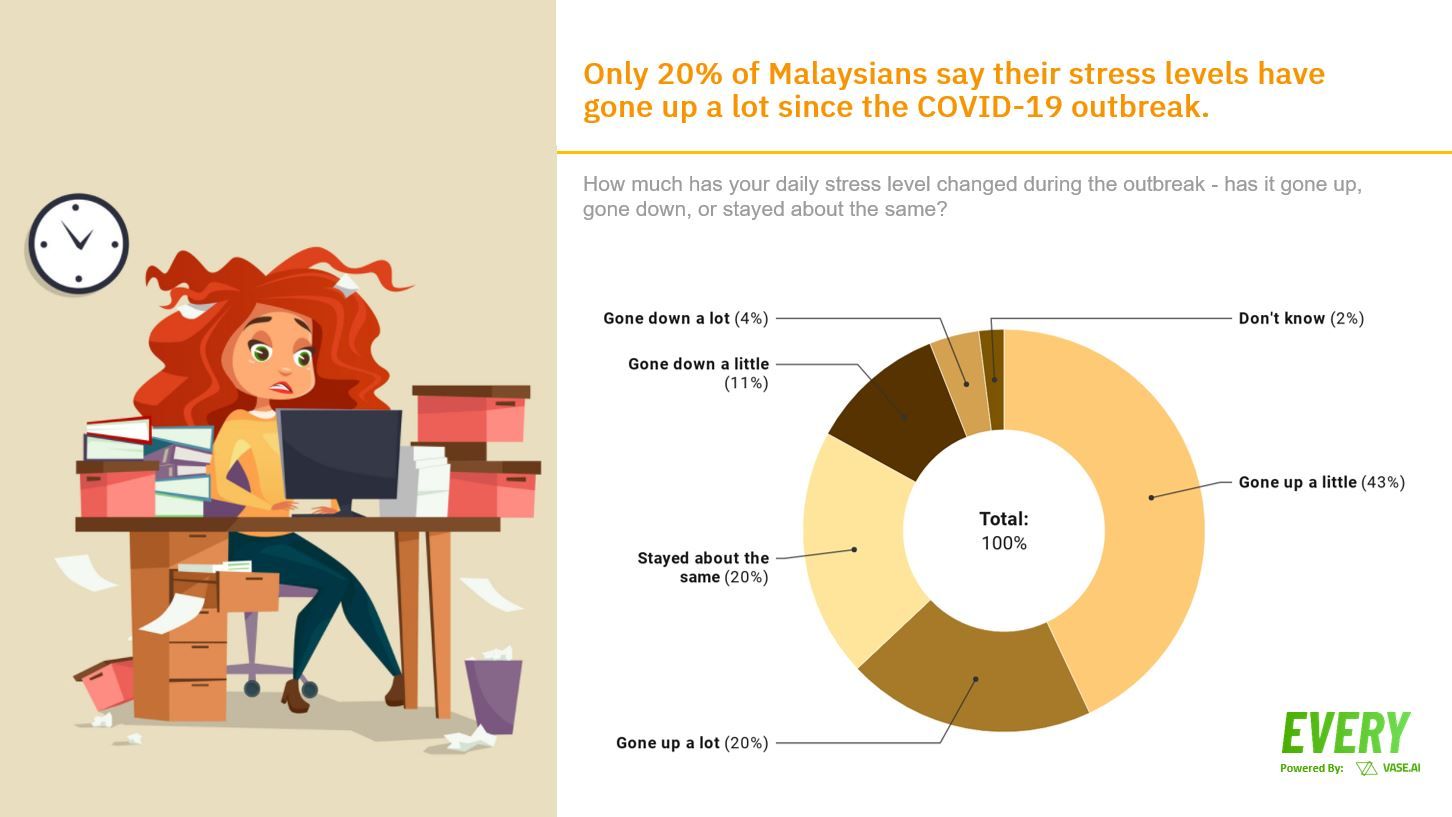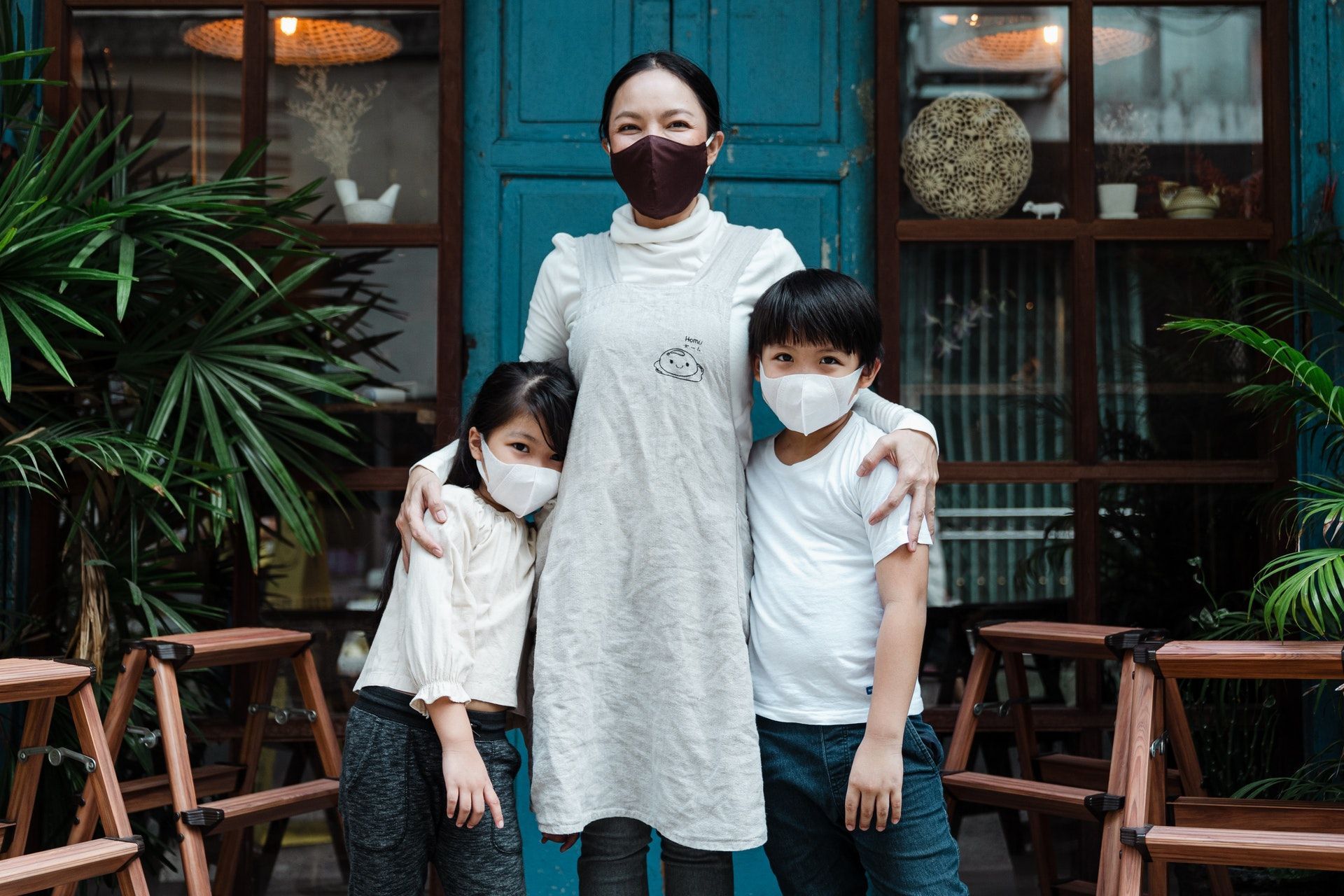The year 2020 changed everyday living for not just Malaysians, but the entire globe. In Malaysia, when the global pandemic hit most actively in March 2020, Malaysians were forced to adhere to tight guidelines to ensure the safety of themselves and their families. Everyday life routines changed, many jobs were threatened, many businesses were put in a position to make very challenging decisions and those who were infected or had family or friends infected by the virus went through a painful and challenging period.
Observing the changes Malaysians had made to their everyday lives, The National Population and Family Development Board (NPFDB), an agency under The Ministry of Women, Family and Community Development took a closer look into how Malaysians were coping in this crucial situation. The government body wanted to learn about Malaysians lifestyle changes, be it professional or personal, and understand the challenges and sacrifices that many individuals were placed in a position to make when the pandemic “disrupted” their lives. NPFDB sought out to learn about and spread awareness of the challenges Malaysians were experiencing during this time.
NPFDB’s Vision is to be the centre of excellence for population & family. As there were large financial concerns among Malaysians during this period, this was a factor to examine and understand the reasons behind a possible fluctuation in family planning rates for not just year 2020, but the impact in which COVID-19 has created, resulting in personal life modifications for a certain period of time, perhaps even beyond the year 2020.
The survey conducted by NPFDB with Vase.ai was presented to 1,175 Nationally Representative Malaysians from ages of 18 and above. Demographics for the study included a population of Gen X, Y and Z of Malaysians, from rural and urban regions who shared details about their professional and personal lives, especially during the COVID-19 pandemic. This study was in preparation for NPFDB’s webinar scheduled in mid July 2020. NPFDB commissioned Vase.ai for this study. The study was conducted on Vase.ai’s flagship product, Every.
“Every” by Vase.ai is a consumer innovation platform that enables organisations to innovate together with consumers in real-time. Every can also be used for rapid public opinion polling, with the capability to collect opinions from 1,000+ nationally representative Malaysians in hours. Organisations like NPFDB are using Every to build better products, services, and public policies together with the people, for the people.
NPFDB’s Statician, Zetty Saidin shared how 'Every' helped them :
“Every offered vast and reliable nationally representative insights to better understand people’s behaviour and helped us make faster, smarter and bolder decisions. In this way, we could accurately understand the behaviour of a larger population without actually engaging with each and every person. The user interface of Every was compelling, visually impressive and very well presented on the real time dashboard.”
Using Every allowed NPFDB to evaluate the depth of COVID-19’s impact on Malaysians personal lives. As the entire globe was confined to their homes and only being indoors, Every became the most effective tool to connect NPFDB to Malaysians to understand their current state of affairs. Additionally, the study was carefully conducted during a crucial period to capture accurate emotions and conditions Malaysians were confined to.
To present the results of the study, The Ministry of Women, Family and Community Development (NPFDB), in observance of the World Population Day 2020, collaborated with University of Malaya and the United Nations Population Fund to host a webinar titled “The Social, Health and Economic Impact of Covid-19 in Malaysia”. The findings of the study were shared by NPFDB’s Deputy Director General (Policy), YBrs, Mr. Hairil Fadzly Md Akir.
The webinar focused on crucial data points and circumstances Malaysians found themselves in during the COVID-19 pandemic, and in especially financial concerns that became a core challenge impacting other aspects of their lives.
The findings from the study covered the below areas:
- Changes in Malaysians’ Personal Lives
- Emotional health / Stress levels observed during the pandemic
- Financial adjustments during and since the pandemic
- Benefits from employers during the pandemic
- Changes in working conditions, environment and styles
- Family planning amidst COVID-19
The results were also then released to the public via an infographic prepared by the NPFDB team.
Media partners, such as Bernama and The Malaysian Population Research Hub publicly shared the findings from the study on social media and their website respectively.
With this study, NPFDB aimed to promote an understanding of social, emotional, and financial issues that Malaysians experienced during a rare pandemic. The survey insights played an integral role in being able to learn the developments that were brought forth COVID-19, the major aspects of daily lives shifts, and what would continue to be a #newnormal for some time into the future.
In a rather positive note, NPFDB learned that 48% Malaysians say their personal lives changed only a little bit as a result of the coronavirus outbreak, while lower but still significant 39% say it changed their personal lives in a major way.
In aspects of mental and emotional health, only 20% Malaysians expressed that their stress levels had increased a lot, while 43% say it increased a little. This affirmed NPFDB’s hypothesis that mental and emotional health was indeed a concern to be accounted for, amidst COVID-19.

As NPFDB foresaw, more than one-third (37%) of Malaysians say they had changed their decisions to delay having children due to COVID-19. What was more concerning was that more than half (58%) of these Malaysians say the reasons for this decision was due to having insufficient savings, while 31% say it was due to financial reasons impacted by COVID-19.
The impact of the pandemic forced Malaysians to make tough decisions, especially their financial state. Via this study, we were able to identify the financial adjustments Malaysians made to ensure they were able to sustain themselves and their families through an unpredictable timeframe.
The learnings from this study shared crucial details of hardships that Malaysians endured and sacrifices they were forced to make. Conversely, it shared positive family life and revealed efficient ways of working. Some valuable lessons learned are:
- Malaysians could make and implement financial adjustment to ensure spendings do not go over-budget and all expenses adopt a “need only” situation.
- Mental health proved to be extremely important. As COVID-19 induced a state of panic, many services were made available for Malaysians to seek help in coping with the uncertainties that were taking place. Cruciality of emotional and mental well-being started to gain deeper value.
- Government aid proved to be a necessity in the nation being able to combat the impact of the pandemic.
- Working from home proved to be greatly beneficial for employers, as 51% Malaysians say their productivity increased when working from home. This could be connected to the privilege of being able to spend time with family members at home, whilst getting their work done.
With this study, NPFDB was able to record statistics on changes to Malaysian population & family life and allowed them to conclude relevant hypotheses, creating more significant future predictions and trends. Their vision to be the centre of excellence for population & family allowed NPFDB to formulate future strategic plans in ensuring inclusivity in more areas of concern for Malaysians. The comprehensive study provided NPFDB with valuable insight to create better policies and educate Malaysians with the right awareness programmes.







